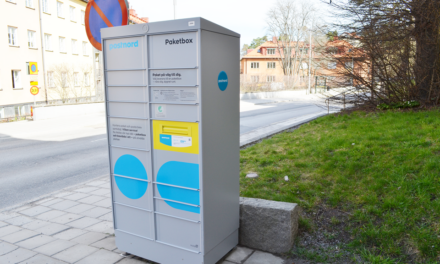
Royal Mail Back in Profit – Unofficial industrial action hits quality of service
For the first time in four years, Royal Mail has made money on its day-to-day operations with a profit of £220 million in 2003-04, compared to losses of £197 million last year, a turnaround of more than 200%.
The profit came from a 4% growth in turnover to £8,633 million, largely as a result of the postage price rise in May 2003, and customers posting more letters last year with volumes up 1.6%. Cost efficiencies from operational changes also played a key role.
The return to profitability follows a two-year period when losses from operations reached more than £1 million a day. However the return on turnover of just 2.5% is still way below a commercial return and much lower than in the 1990’s when returns of around 6% were generated in some years, and significantly lower than our main competitors.
Royal Mail’s Chairman, Allan Leighton said, “There has been much comment on Royal Mail’s Renewal Plan and whether its focus is either on finance or service. The answer is definitely both. For clarity, everyone should be clear that in the period covered by these results prior to the unofficial industrial action in the Autumn, the Quality of Service results in the company were the best for 15 years. Cumulatively, we’ve not achieved our licence targets – but the biggest single factor behind this was that unofficial strike. Without it, we would have reported Quality of Service levels higher than at the beginning of the Renewal Plan, as well as an even higher profit number – as our profit outturn has been reduced by both lost revenue and the cost of compensation to our customers.
The current Quality of Service issues are not covered by this reporting period. Their impact will be shown in the coming year’s financial performance. However, the current reductions in quality, which are driven partially by the lack of a full recovery from the unofficial action, but largely by the massive modernisation changes required in the company, are not acceptable, are now beginning to improve and are the key focus of everyone in the company.”
To underline this, Mr Leighton also announced that he is to defer his entire earned bonus for the year until the Group meets key agreed quality of service targets in 2004-05. If these numbers are not achieved, the bonus is waived.
Elmar Toime, the Deputy Executive Chairman who until recently headed Royal Mail’s letters operation, has agreed to defer half his earned bonus for the year into 2004-05, to be conditional on achievement of key Quality of Service targets. At the same time, other executive directors including Adam Crozier, Group Chief Executive, are to waive the quality of service element of their bonus for the year, which can be up to 20% of the total.
Although Royal Mail achieved 90.1% next-day delivery for First Class mail last year despite serious industrial action in the autumn of 2003, performance fell short of the 92.5% target set by Postcomm. Two weeks ago, Mr Crozier said he was taking direct control of the letters operation.
Mr Leighton said: “Anything short of our targets is not good enough.
“In deferring these bonuses, we are saying we have confidence in everyone in Royal Mail achieving our key targets by the end of this current year.
“This is the right response to the genuine concerns of our customers. It shows our determination to get quality of service back on track everywhere,” said Mr Leighton.
Mr Leighton also confirmed that the company had written to Channel 4 and Hardcash, the producers of the ‘Dispatches’ programme, asking for an apology to the UK’s postmen and women for the innuendo created by accusations in the programme that credit cards, which Barclaycard has since confirmed were not posted into Royal Mail’s system, had been stolen from the postal system in an organised way.
He added: “By far the biggest impact on performance against targets last financial year was the unofficial strikes in the autumn. The disruption meant we had no realistic chance of hitting targets and we have failed all of the cumulative letter quality targets for 2003-2004. We’ve got to do a lot better than that this current year.
“Making a profit, however, is a major step forward, especially when Royal Mail was losing well over £1 million a day from its operations barely two years ago, and allows us to invest in our company and in our people’ pensions and pay.”
Mr Leighton said 2003-04 was a tough year and 2004-05 – the last year of the company’s three-year renewal plan – was going to be even tougher.
“Competition is increasing and we can’t assume future growth will drive profit. Postage prices are also falling in real terms under the regulator’s price cap. That’s why it is essential that Royal Mail completes what is, in effect, a re-engineering of the letters operation – a single daily delivery, a new transport network and streamlining operations in the big mail centres.












